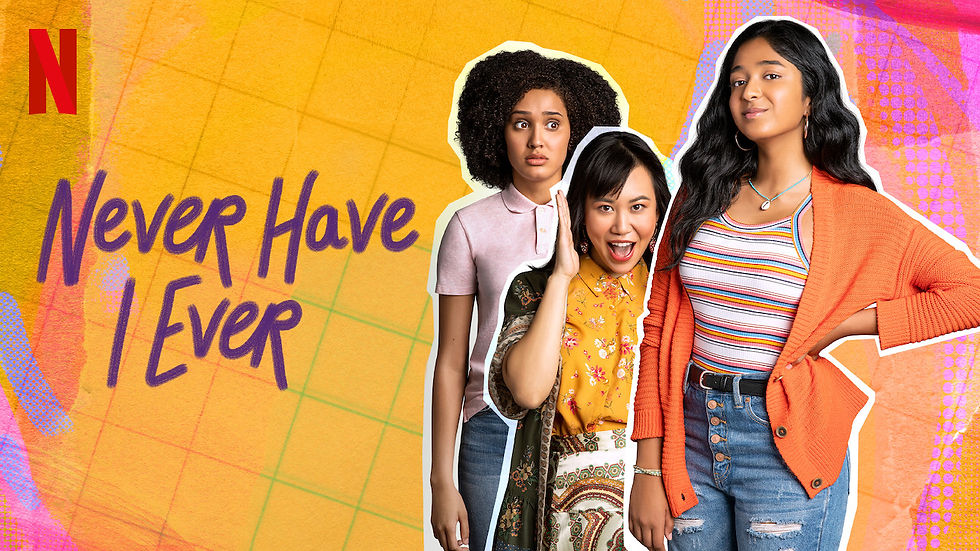
Mindy Kaling’s show Never have I ever is a teen rom-com about a 15-years-old Devi, an Indian- American teenager trying to navigate her sophomore year at high school while coping with the death of her father. However, unlike any other rom-com, this show holds great significance in terms of the representation of a young Indian American woman. Many non- south Asian audience members can use this show as their source of information on the region. Therefore, a critical analysis of this show is important.

This how has a diverse cast and complex characters. Unlike most movies that represent people of colour through sharply opposed binary extremes, Never have I ever attempts to move away from this binary form of representation. Devi’s character is complex; she is smart, has a terrible temper and an unconventional way of processing her grief. While this show may be an easy-breezy watch for anyone who likes a good teenage drama, I believe that it has solidified stereotypes about Indians.
In its attempt to address the issue of colourism, the show has normalised purity culture, Islamophobia, and racial supremacy. It gives the impression that all Indians are Hindus. Similarly, it reinforces the stereotype that all Indians care about perfect scores. One example of this is a scene where Devi’s mother asks her to pray for getting into Princeton during Ganesh Puja. Devi’s mother Nalini also reinforces a stereotype about Indians when she says that therapy is only for white people. While the show has a diverse cast, many characters exist in a “cultural void” and act as cultural props for Devi. Another disturbing element of the show is its casual Islamophobia; a Hindu woman is ostracized for marrying a Muslim. Nalini also praises Narendra Modi in a scene- a man who is responsible for the murder of thousands of Muslims in Gujrat, which is known as the Gujrat Massacre.

The show also promotes casteism and endogamy. Devi’s cousin Kamala leaves her Asian American boyfriend to pursue a relationship with the upper caste man. One of the critics points out, “At the heart of Never Have I Ever is an age-old assimilation narrative that goes even further by using a white narrator and overblown Indian accents to help its caste and class-privileged Indian-American viewers self-orientalize until they’re comfortably arranged inside the racist American imaginary, not outside of it."

In a time of deep polarization, the way we tell our stories becomes incredibly important. While this show is entertaining, I believe that South Asians need better storytelling. Celebrating the show for its representation ignores numerous explicit and implicit stereotypes that it perpetuates.
It’s so disappointing when you’re all hyped for a chance to be represented and all they pull up with are stereotypes!
I agree the show checks off every single stereotype associated with Indians – over-protective conservative parents, nerdy children, arranged marriages, and mean aunties.
I agree! I feel like they made it way too typical, they could have had unique elements in the characters and still would have been able to represent the south asian culture perfectly
Totally agree! I have no idea what all the hype was about. The show was weirdly political and the acting was off too.